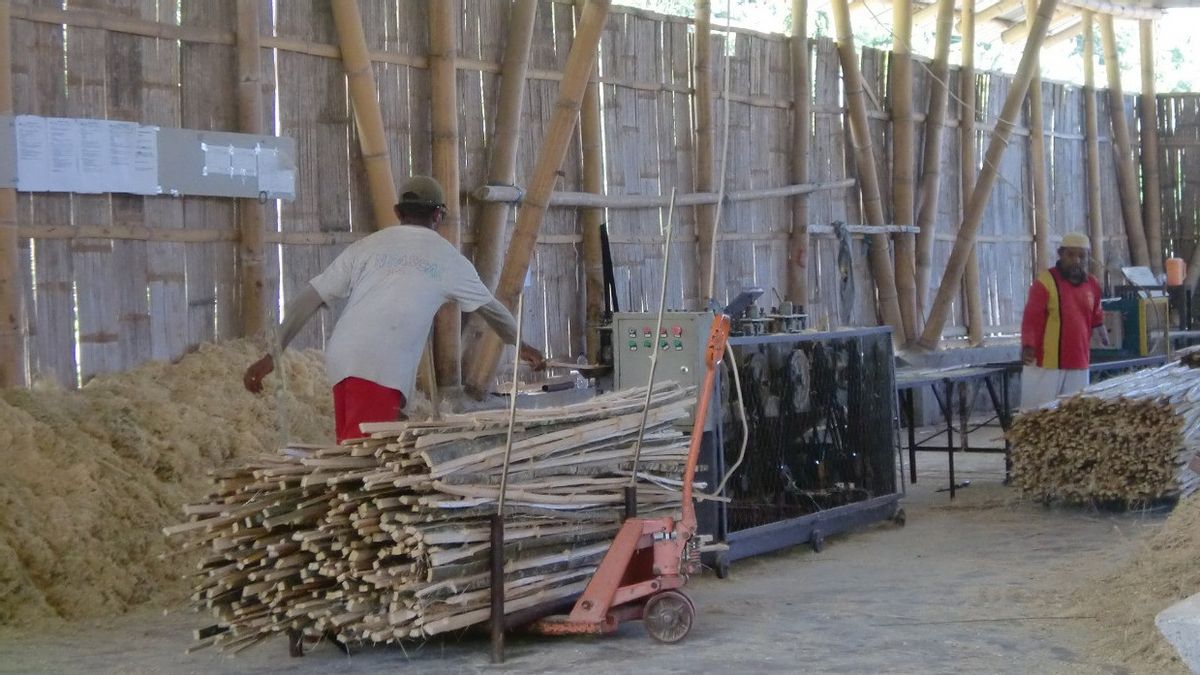JAKARTA - Bamboo plants are a natural resource that is closely related to the life of the Indonesian people. With good processing, bamboo can be a source of economic driving force for the community.
As has been done by the community in NTT, through a program to improve the quality of the environment carried out by the Ministry of Environment and Forestry (KLHK). Bamboo can have very high economic and cultural ecological value.
“The National Bamboo Strategy and Action Plan has been prepared by KLH to be reviewed, updated and perfected. Parallel, we develop upstream, middle and downstream by continuing to encourage planting activities as a continuity of the bamboo industry, ”said Deputy Minister of Environment and Forestry, Alue Dohong in his statement, Friday, March 12.
In this climate corner discussion, the Deputy Governor of East Nusa Tenggara NTT, Josef Nae Soi, conveyed the NTT Provincial Government Policies and Programs in the development of bamboo for greening and the economic progress of the community. Josef explained that the bamboo plant is closely related to the traditions and rituals of society, and even becomes a symbol of someone who works hard.
From an ecological point of view, bamboo can increase the volume of underground water, conserve land and improve the environment. For an economical point of view, bamboo can be used as a building material, transportation, culinary, musical instruments, household tools, and even medicine.
"The Bamboo Development Policy by the NTT Provincial Government, among others

The Negu Wula Golewa (Sa'o) sub-ethnic group, planting the natural dye Strobilathes cussiaNgada, NTT (doc. KLHK)
decided bamboo as one of the leading non-timber forest products (HHBK) through Governor Decree No. 404 / KEP / HK / 2018, making bamboo development part of the NTT Provincial Medium-Term Development Plan (RPJMD), preparing a budget, and collaborating with multistakeholders " , added Josef.
Researcher at the Research and Development Center for Forest Products, the Ministry of Environment and Forestry Research and Development Agency, IM Sulastiningsih said that currently the use of bamboo in Indonesia is still limited. So that the diversification of bamboo processing products needs to be increased by producing engineered bamboo products in the form of bamboo lamina which can be used as a wood substitution material.
"The development of the bamboo lamina industry must be supported by an integrated government policy in providing sustainable raw materials," explained Sulastiningsih.
A similar sentiment was also conveyed, Chairman of the Ethnobiology Research Group from the Center for Biological Research, Indonesian Institute of Sciences (LIPI), Wawan Sujarwo. According to him, bamboo plants have an important role in Environmental Services and Nature Conservation.
Bamboo is one of the most tolerant plant species, capable of growing from lowlands to highlands. The potential of bamboo in terms of environmental services is very promising, especially water and carbon.
Wawan emphasized the need to unite the perceptions of all stakeholders (academics, business, government, community, and even the media) that bamboo has great potential in terms of services and the environment.
The same perception can be stated in the form of regulations to support concrete action that payment for ecosystem services must be implemented in Indonesia with a mechanism that is not so complicated, so that the owners of bamboo forests, both the community (farmers, private) and even the state, can get payment from the value of environmental services. which has been given a bamboo forest.
The English, Chinese, Japanese, Arabic, and French versions are automatically generated by the AI. So there may still be inaccuracies in translating, please always see Indonesian as our main language. (system supported by DigitalSiber.id)








